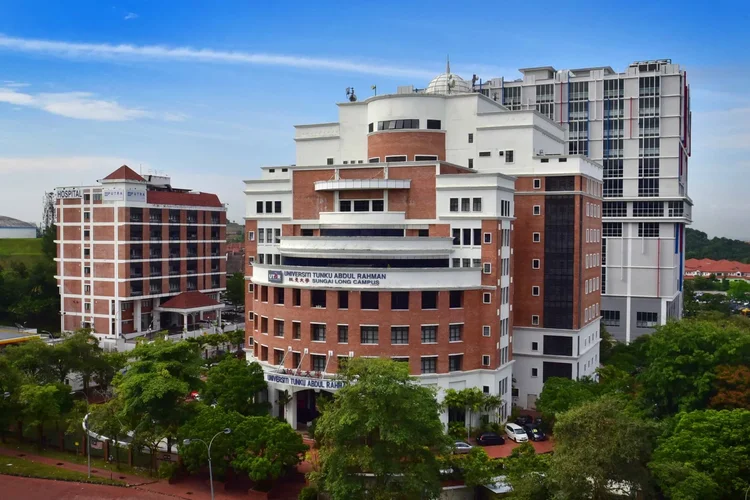Front row, third from left: Dr Cheah with the participants
The Centre for Learning and Teaching (CLT) and the Faculty of Medicine and Health Sciences (FMHS) organised a talk titled “What’s new in ethics of human subject research?” at Sungai Long Campus on 1 June 2018.
Dr Cheah delivering her talk
Invited to deliver the talk was Dr Cheah Phaik Yeong, an Associate Professor of Oxford University based in Bangkok at the Wellcome Trust Major Overseas Programme. She is currently the Head of Bioethics and Engagement Department which works on ethical issues arising from conducting research and working with vulnerable populations such as children, pregnant women, and migrants as well as other disadvantaged and hard-to-reach populations.
According to Dr Cheah, research ethics involve what is appropriate when conducting research with human beings. “For example, it is about how to ethically invite individuals to participate in the research and making sure that their consent to participate is valid,” she said and continued, “There is a lot of neglected diseases that affect the poor but there is no enough research conducted in these areas. So we have to conduct more research to collect evidence in order to manage these diseases better. However, the concern here is about exploiting the people. We want to make sure that we strike a balance between protecting disadvantaged populations from research and protecting them through research.”
During the talk, she explained that research ethics guidelines were developed as a result of World War II atrocities and how they inspired the formation of the Nuremberg Code. “During World War II, the Nazis conducted experiments on prisoners as they were vulnerable and were easy targets for human subject research. A lot of people were tortured and killed during the process. The Nuremberg Code wassubsequently developed in 1947, stating that the voluntary consent of the human subject is essential and making it clear that the person involved should have the legal capacity to give consent,” she said.
She also gave an explanation about the International Council for Harmonisation (ICH) of Technical Requirements for Pharmaceuticals for Human Use guidelines, adding that it is the main guideline for researchers who conduct drug studies. She further explained that ICH is not a guideline on ethics per se. Rather it is a set of guidelines for drug trials but it has guidelines on the importance of getting informed consent from the subject.
Furthermore, she also shared her thoughts about Council for International Organizations of Medical Sciences’ (CIOMS) guideline during her talk. She mentioned that the CIOMS guideline was recently updated since the last edition in 2002. She then shared three particular sections, in CIOMS’ guideline that she has been working on, which were Data Sharing, Vulnerabilities in Research and Community Engagement.
“When we talk about data sharing, it is about sharing the whole set of data you have collected to a third party. This means we are moving towards a more open and transparent society. However, this can be very controversial; you spent two years on a project and upon gaining the result, you are required to share the data set with other people. Many agree that data should be shared to maximize its utility. However, if you share all the data you have worked hard for, you may feel like your efforts are wasted since others can use it for themselves,” explained Dr Cheah.
She also shared some challenges she faced in conducting research. For example, research in tropical medicine such as malaria takes her to remote places such as rural Cambodia. Moreover, hospitals in such places lack resources required to conduct good quality research.
When asked about her future plans, Dr Cheah said, “I think I will stick around in Southeast Asia conducting research on research ethics as there is a lot to do here.”
The talk ended with a Q&A session, followed by a souvenir presentation from FMHS Dean Emeritus Prof Dr Cheong Soon Keng to Dr Cheah.

Prof Cheong (right) presenting a token of appreciation to Dr Cheah, while CLT Chairperson Er Pek Hoon looks on
 +60142521561
+60142521561









